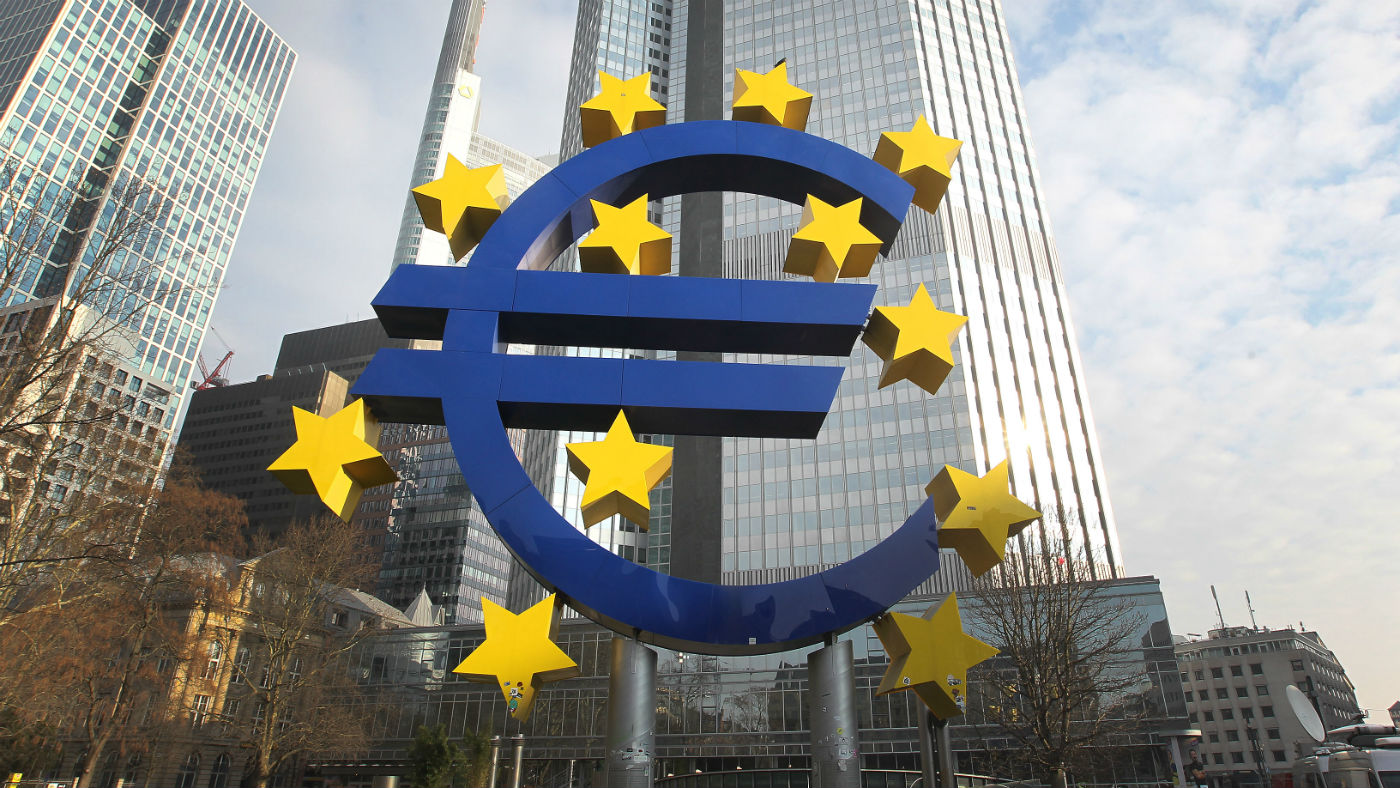Will ECB stimulus be enough to revive the eurozone?
European Central Bank cuts key rate, and announces it will re-initiate quantitative easing

A free daily email with the biggest news stories of the day – and the best features from TheWeek.com
You are now subscribed
Your newsletter sign-up was successful
The European Central Bank has unveiled a raft of new stimulus measures aimed at reviving the flagging eurozone, even as experts question whether they go far enough.
The ECB will cut its deposit rate to a record low of -0.5% from -0.4% and will restart bond purchases of 20 billion euros a month from 1 November, just nine months after announcing the end of its quantitative easing programme.
The central bank also eased the terms of its long-term loans to banks and introduced a two-tiered deposit rate, under which some banks’ holdings are exempt from the negative deposit facility rate “amid growing concerns that negative rates are risking banks’ profitability”, reports The Times.
The Week
Escape your echo chamber. Get the facts behind the news, plus analysis from multiple perspectives.

Sign up for The Week's Free Newsletters
From our morning news briefing to a weekly Good News Newsletter, get the best of The Week delivered directly to your inbox.
From our morning news briefing to a weekly Good News Newsletter, get the best of The Week delivered directly to your inbox.
Explaining the reasoning behind the move, outgoing ECB chief Mario Draghi said the eurozone was suffering from the “prevailing weakness of international trade in an environment of prolonged global uncertainties” which include the US-China trade war and Brexit. He said that while the probability of a eurozone recession remains “small”,“it has gone up”, with the ECB downgrading GDP growth forecasts for the eurozone to 1.1% this year and 1.2% in 2020. Headline inflation is also “likely to decline before rising again towards the end of the year”, he added.
With inflation falling, Germany skirting a recession and a global trade war sapping domestic confidence, “the ECB had all but promised more support to the economy and the only question was how extensive stimulus would be”, reports Reuters.
“The changes are far-reaching, but are not as extreme as some analysts had predicted,” says The Daily Telegraph.
“The announcement of looser policy is remarkable, given the ECB said it was done with its dovish approach as recently as nine months ago,” says the paper, “but global events, which have weighed particularly on the bloc’s industrial champion, Germany, have forced policymakers to once again crack out the stimulus”.
A free daily email with the biggest news stories of the day – and the best features from TheWeek.com
Ranko Berich, an analyst at Monex Europe, says: “At first glance, the ECB has not quite thrown the kitchen sink at the eurozone economy. The QE package at 20bn/m is shy of market expectations, which were 30 billion a month. But the Bank is clearly back in the business of serious policy easing and more aggressive action could easily be taken in response to a worsening in conditions”.
Lukman Otunuga, senior research analyst at FXTM, said that “given the concerns revolving around the health of the Eurozone economy, most were expecting Draghi to launch a monetary policy bazooka before his departure” but markets seemed disappointed with the ECB’s actions.
“However, the argument for the ECB saving some ammunition in the monetary policy toolbox could be for when economic conditions worsen”, he added, echoing widespread market sentiment.
BBC economics correspondent Andrew Walker says there is a view that negative interest rates are “actually counterproductive, that it has an adverse impact on bank profitability” and that “perhaps ECB policy more widely has reached the limit of its ability to stimulate economic activity”.
Instead, the “other main weapon against economic weakness is in the hands of governments - fiscal policy, or public spending and taxation” he adds. “For some governments in the eurozone, their scope to use that weapon is constrained by the amount of debt they already have and by eurozone rules. But the likely next head of the ECB, Christine Lagarde has called for more action in that area.”
The Guardian says the ECB’s support for the eurozone economy “comes at a tense political moment as Donald Trump attempts to apply pressure on the US Federal Reserve to cut interest rates as the American economy falters”.
In critical comments less than an hour after the ECB decision, Trump used a tweet to attack the Fed for its lack of action: